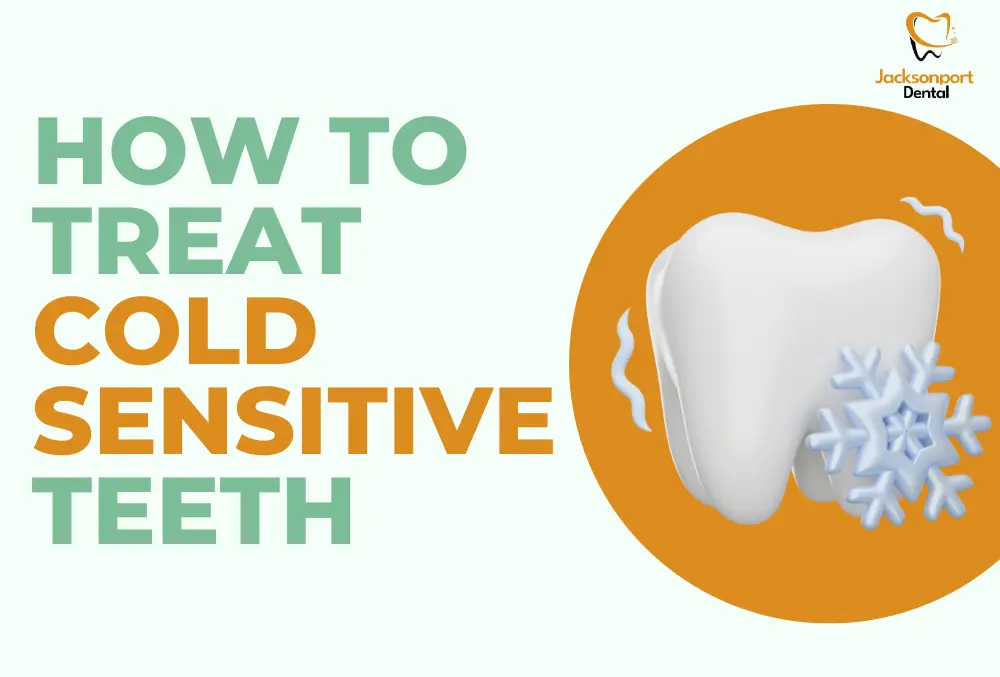Many people in Calgary experience cold-sensitive teeth, especially when the weather starts to drop in temperature or when enjoying cold treats like ice cream. If you often feel a sharp, uncomfortable sensation when your teeth come in contact with something cold, you’re not alone. Cold sensitivity is a common dental issue, and the good news is that there are effective treatments available to help.
In this blog, we’ll explore the causes of cold-sensitive teeth, how to treat them, and when you should visit a dental clinic in Calgary to resolve the issue.
What Causes Cold-Sensitive Teeth?
Cold sensitivity happens when the protective layers of the tooth wear down, exposing the dentin underneath. Dentin contains tiny tubes that lead to the nerve center of the tooth, and when it comes in contact with cold substances or air, it triggers pain or discomfort. Here are some common reasons why you might have cold-sensitive teeth:
- Worn enamel: The enamel, which is the hard outer surface of your teeth, can wear down over time due to aggressive brushing, consuming acidic foods, or grinding your teeth.
- Gum recession: As your gums recede (pull back from your teeth), they expose the roots of your teeth. The roots don’t have the same protective enamel as the rest of your teeth, making them more sensitive to cold temperatures.
- Cavities or tooth decay: Decayed teeth have weakened enamel, which can lead to increased sensitivity when exposed to cold.
- Cracked or chipped teeth: Fractures in your teeth can allow cold air or liquid to reach the inner nerve, causing sharp pain.
- Recent dental work: Procedures like dental fillings, crowns, or teeth cleaning in Calgary can sometimes temporarily increase sensitivity.
Once you understand what’s causing your tooth sensitivity, it’s easier to treat and manage the condition.
Effective Ways to Treat Cold-Sensitive Teeth
Thankfully, there are several effective ways to treat cold-sensitive teeth. Depending on the cause of your sensitivity, these treatments can range from simple home care solutions to professional treatments from your dentist.
1. Use Toothpaste for Sensitive Teeth
One of the easiest ways to manage cold sensitivity is by using a toothpaste specifically designed for sensitive teeth. These toothpastes contain ingredients that help block the tiny tubes in the dentin, preventing the cold from reaching the nerves in your teeth. Look for toothpastes that contain potassium nitrate or stannous fluoride. It may take a few weeks of regular use before you notice an improvement, but over time, these toothpastes can significantly reduce sensitivity.
2. Improve Your Brushing Technique
Brushing too hard or using a hard-bristled toothbrush can wear down your enamel, leading to increased sensitivity. To protect your teeth, make sure to use a soft-bristled toothbrush and brush gently in circular motions. Avoid using abrasive toothpaste, which can also contribute to enamel wear. If you’re unsure about your technique, your dentist can show you how to brush properly to avoid damaging your teeth and gums.
3. Avoid Acidic Foods and Drinks
Acidic foods and beverages, such as citrus fruits, soda, and wine, can erode your enamel, making your teeth more vulnerable to sensitivity. Try to limit your consumption of acidic foods, and if you do indulge, rinse your mouth with water afterward to reduce the acidity. Drinking through a straw can also help minimize direct contact between the acid and your teeth.
4. Wear a Mouthguard if You Grind Your Teeth
Teeth grinding (also known as bruxism) is a common habit that can cause tooth sensitivity by wearing down your enamel over time. Many people grind their teeth at night without even realizing it. If you suspect you might be grinding your teeth, talk to your dentist about getting a custom mouthguard. Wearing a mouthguard while you sleep can help protect your teeth from further damage and reduce sensitivity.
5. Use Fluoride Treatments
Fluoride strengthens the enamel and helps protect your teeth from sensitivity and decay. At home, you can use fluoride mouthwashes or fluoride toothpaste to protect your teeth. However, for more severe sensitivity, your dentist can apply a professional fluoride treatment during your routine visit. This concentrated treatment can provide an extra layer of protection to your enamel, helping to reduce sensitivity to cold temperatures.
6. Consider Dental Sealants or Bonding
If your cold sensitivity is due to gum recession or exposed tooth roots, your dentist may recommend applying a sealant or dental bonding to cover the exposed areas. These treatments act as a protective barrier between your sensitive areas and cold substances, providing long-lasting relief. Sealants are commonly used for the back molars, while bonding can be applied to areas near the gum line.
7. Treat Underlying Dental Issues
If your cold sensitivity is caused by a cavity, a cracked tooth, or an exposed tooth root, it’s important to address these issues as soon as possible. Untreated dental problems can lead to further complications, including infections and worsening sensitivity. Your dentist may recommend fillings, crowns, or root canal treatment, depending on the severity of the issue.
Preventing Cold-Sensitive Teeth
Prevention is key when it comes to avoiding cold sensitivity. Here are some steps you can take to prevent tooth sensitivity:
- Brush and floss regularly to maintain healthy gums and teeth.
- Use a soft-bristled toothbrush and fluoride toothpaste to protect your enamel.
- Limit acidic foods and drinks that can wear down your enamel.
- Wear a mouthguard if you grind your teeth at night.
- Schedule regular dental check-ups for preventive care and early detection of issues.
When to Visit Your Dentist
If you’ve tried home remedies and your cold sensitivity is still bothering you, or if the sensitivity is severe and persistent, it’s important to visit a dentist. Persistent cold sensitivity could indicate a more serious underlying problem, such as tooth decay or gum disease.
At Jacksonport Dental, we offer a range of treatments to help you manage cold-sensitive teeth. Our dental team in Calgary can assess your condition and recommend the best treatment option for your needs, whether it’s a fluoride treatment, dental bonding, or a custom mouthguard.
Regular check-ups and professional teeth cleaning in Calgary are also crucial in preventing tooth sensitivity and maintaining overall oral health. Don’t let dental health affect your daily life—contact us today to schedule an appointment and explore treatment options.



